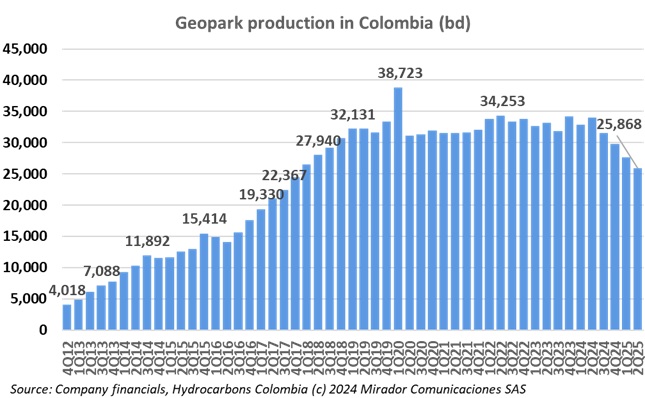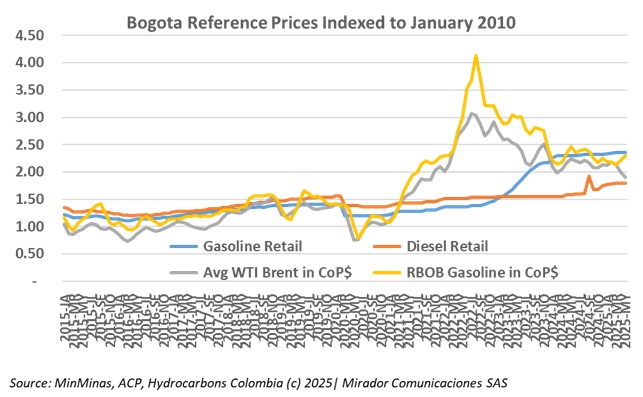
GeoPark Limited (NYSE: GPRK) released its operational update for the second quarter of 2025, reporting steady oil and gas production despite temporary challenges in key assets.
The Colombian Ministry of Labor (MinTrabajo) held a meeting with representatives from Cenit Transporte y Logística de Hidrocarburos, a subsidiary of Ecopetrol (NYSE: EC, and the Unión Sindical Obrera (USO), the oil workers’ union, to evaluate recent labor changes under Cenit’s internal project Operación Sostenible (OPES).
At the Emergency Conference on Palestine held in Bogotá, Colombian President Gustavo Petro announced a decisive shift in the country’s energy and foreign policy.
In the first half of 2025, Ecopetrol significantly increased its labor opportunities, adding 66,052 new hires through its network of contractors as part of its commitment to regional economic development.

Admittedly not for Canacol, LNG (formerly Lewis), PetroSantander, or NG Energy whose revenues principally come from gas, but for the rest of the industry, Brent has an oversized impact on all the big strategic decisions. It is by far the principal “known unknown”.

Despite falling international fuel prices and a stronger exchange rate, Colombian consumers are currently paying significantly more for gasoline, up to CoP$2,000 above global reference prices, while indirectly subsidizing diesel.
The Colombian retail fuel sector is showing strong signs of recovery, according to the latest quarterly report from the Confederation of Retail Distributors of Fuels and Energy (Comce).
Canacol Energy Ltd. (TSX: CNE) released a comprehensive update on its latest drilling activities across multiple exploration blocks in Colombia, reporting a mix of technical challenges and promising gas discoveries within its 100% working interest wells.
Agremgas, Colombia’s Liquefied Petroleum Gas trade association, submitted comments on the proposed Resolution 703 001 of 2025, urging the Energy and Gas Regulatory Commission (CREG) to make key adjustments to the current purchase capacity mechanism to further formalize and strengthen the sector.

Despite a recent recovery in global oil prices, Ecopetrol’s (NYSE: EC) share price continues its downward trend, weighed down by investor concerns over government policy decisions and corporate governance at Colombia’s largest company.